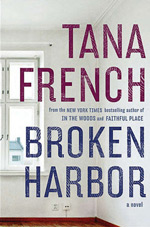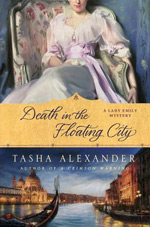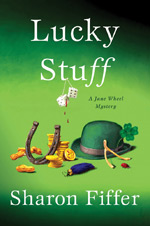Tana French: Broken Harbor
The two signature books of the summer, Gillian Flynn’s Gone Girl and Tana French’s Broken Harbor, share a theme: the recession, joblessness, and the losses that come with those circumstances. In Gone Girl, Flynn’s characters lose their jobs and investments and are forced to leave Manhattan for the wilds of Missouri, where they are fish out of water.
 The former Dubliners in French’s novel, Pat and Jenny, find their dream home in a development that never “developed,” far out from the city and away from any of their friends or former lifestyle. And their move was made for the most prosaic of reasons: so their kids could grow up in a real house with a backyard. Like Flynn’s characters, Pat has lost his job, and the development is a ghost town.
The former Dubliners in French’s novel, Pat and Jenny, find their dream home in a development that never “developed,” far out from the city and away from any of their friends or former lifestyle. And their move was made for the most prosaic of reasons: so their kids could grow up in a real house with a backyard. Like Flynn’s characters, Pat has lost his job, and the development is a ghost town.








